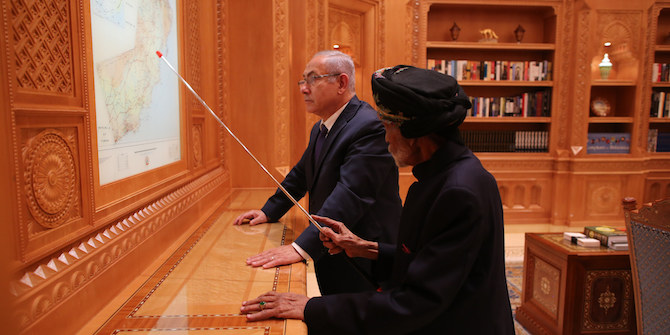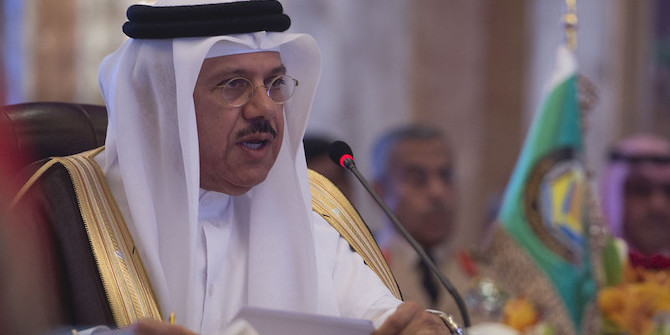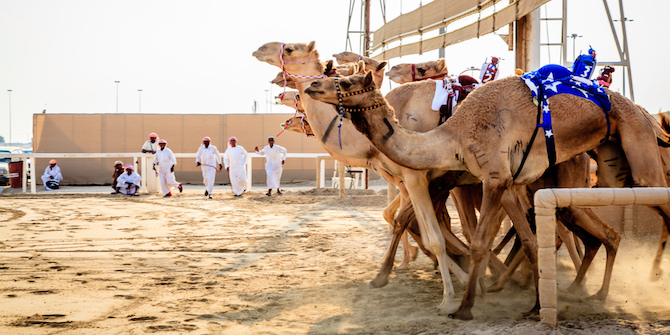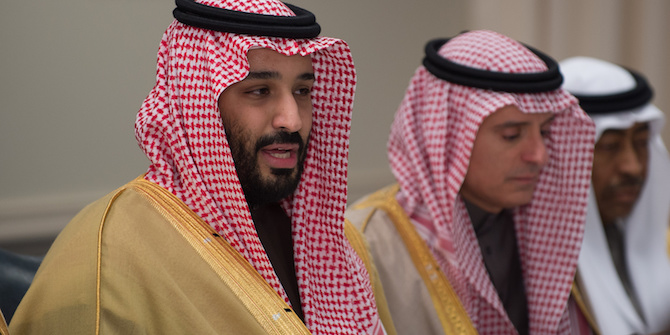by Kendall Livingston

Dubai, one of the main trading hubs in the Gulf, is considered by some to be the gateway to the Middle East. Source: Eugene Kaspersky, Flickr
In early June, a group of eleven experts and academics from across the globe came together to present and discuss their findings on economic growth and exports in the GCC States, with the goal of providing policy recommendations for sustained economic growth.
The aim was to explore the experiences of GCC states in relation to export and economic diversification over the last decades and the ways in which such experiences affect economic growth.
The two-day workshop started with its first session exploring oil dependency and the GCC’s growth in exports including the export of its natural resources.
The second session discussed options for what else GCC states could export for further economic growth.
The final session looked at the GCC’s export diversification and economic growth overall, and what lessons could be learned from other oil producing economies.
This workshop forms a key component to the ACAUP project ‘Export Composition and Economic Growth in the UAE: Multivariate Time Series Analysis (1981-2017)’ led by Dr Athanasia Kalaitzi, LSE Middle East Centre, in collaboration with Dr Samer Kherfi, American University of Sharjah.
In a robust and engaging discussion in three thought-provoking sessions, speakers and participants deliberated over these complex questions and themes. Panellists have contributed summaries of their fascinating presentations to the LSE Middle East Centre, which are featured in this blog series. The posts integrate some of the findings and insights that emerged from the workshop. Some broader conclusions will be compiled in a forthcoming publication for the LSE Middle East Centre Paper Series.
This is part of a series on the possibilities and obstacles for economic growth, exports and diversification in the GCC states, based on contributions from participants in a closed LSE workshop in June 2021. Read the introduction here, and see other pieces below.
In this series:
- Exports, Diversification and Economic Growth by Kendall Livingston
- Economic Complexity and Exports: Kuwait in the Context of the GCC Region by Margarida Bandeira-Morais, Simona Iammarino and M. Adil Sait
- Growth in the Gulf: Four Ways Forward by Frederic Schneider
- The Role of Economic Complexity in Increasing Exports and Growth by Anis Khayati
- Beyond Oil: Have Manufactured Exports and Disaggregated Imports Contributed to Economic Growth in Kuwait? by Trevor Chamberlain and Athanasia Stylianou Kalaitzi
- The Nexus Between Export Diversification, Trade Openness and Economic Growth in the UAE by Saima Shadab
- Export-Led Growth in the UAE: Causality Between Non-Primary Exports and Economic Growth by Athanasia Kalaitzi, Samer Kherfi, Sahel Al-Rousan and Maria-Salini Katsaiti
- Reaching for the Stars: How and Why do the Gulf States Aim to Transform Their Economies to ‘Knowledge-Based Economies’? by Martin Hvidt






